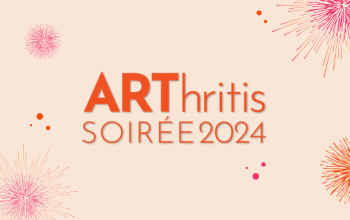Training the Next Generation of Arthritis Scientists
At Arthritis Research Canada, we believe that helping new scientists develop their careers is the best way to ensure we continue to find solutions for millions of Canadians living with arthritis.
Arthritis can impact many aspects of a person’s life – from work to family, ability to remain active, length of life and so much more. Our researchers examine data and conduct studies to create programs, apps and more to help people live their lives to the fullest despite arthritis.
And while training scientists has always been part of the fabric of our organization, we are now taking steps to formalize our training program by appointing an Associate Director of Training.
Dr. Mary De Vera is a research scientist who first joined Arthritis Research Canada as a trainee in 2004. Since becoming a research scientist in 2013, she has supervised and mentored many trainees and is excited to take on this new role.
“I have always had a passion for training,” she said. “We have a lot of experienced scientists with different backgrounds, positioning us to become a centre for training excellence in arthritis research.”
De Vera added that the Arthritis Research Canada Trainee Network will include seminars and workshops, help with scholarship applications, writing and more – everything to get someone ready for a career in arthritis research.
Having a Mentor Goes a Long Way
“We want to connect trainees with each other and with scientists and develop programming to support them in their training,” she said.
The path to a career in research is long. A master’s degree is typically two years, a PhD is four, and a postdoctoral fellowship is another two. Both master’s and PhD degrees involve developing a thesis project with a specific research question, collecting data, analyzing it and presenting findings as an abstract or article published in a journal.
“It’s so important to have strong mentors to help young researchers navigate these steps,” De Vera said. “Academic courses teach theoretical learning, but many practical things aren’t taught in graduate school. For example, how do you write an abstract? How do you write a paper? What do you need to consider when recruiting study participants? How do you analyze data?”

Real World Impact
If you’re someone living with arthritis, you might be wondering, how does this training program impact me? While researchers train for a long time, the impact of their work doesn’t start when they finish school.
“The research that our trainees do is the research that we do. There is no separation,” De Vera said. “In fact, trainees drive the research at Arthritis Research Canada. They collect the data, analyze it, write the papers and present the findings.”
Arthritis Research Canada trainees are studying how patients take their medications and what happens if they don’t take them as prescribed. They are looking at side effects of biologics vs. biosimilars. They are examining the effectiveness of health tracking apps, the safety of arthritis medications during pregnancy, COVID-19 complications in people with inflammatory arthritis and so much more.
“Their research helps people with arthritis make informed decisions about their treatment and overall health, De Vera said.
Growing Need for Arthritis Research
The number of people with arthritis continues to rise each year in Canada. It is estimated that, by 2040, 12 million Canadians will have osteoarthritis. And there are over 100 different types of arthritis currently affecting more than 6 million people in this country.
“Given the number of conditions, there is a huge need for arthritis research,” De Vera said. “My PhD supervisor and mentor always told me, ‘To move science forward, you have to do the science, but you also have to train people who will continue to do that science.”
The world is going to need more researchers to tackle the problems that come with having arthritis and Arthritis Research Canada is well-positioned to train them.
“Trainees at Arthritis Research Canada have a primary supervisor, but the senior research staff has an open door policy,” De Vera said. “Trainees have access to a diverse team for feedback and advice, which results in collaborative, well-rounded research.”





















































